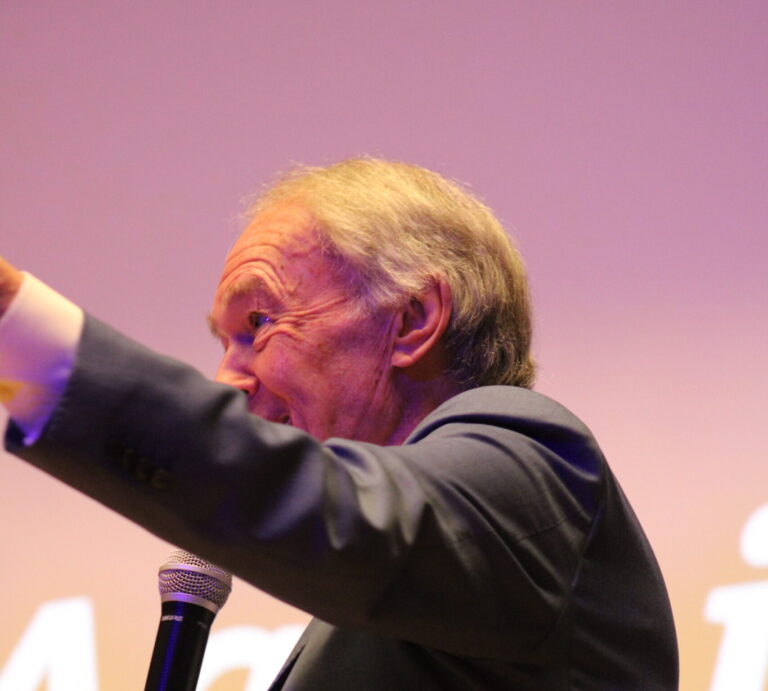Over the summer, a monumental decision was reached by the Supreme Court. On June 26, 2015, gay marriage became legal everywhere in the United States. This, a huge day in history, was obviously celebrated and #LoveWins trended on twitter with 2.6 million tweets. It seems like you could not go on any social media site and not see people talk about it. By the next day though there were already articles talking about how this does not mean that everything regarding LGBTQ+ (lesbian, gay, bisexual, transgender, queer, and any other identities and sexualities along the spectrum) rights in America is solved and that there is still a lot left to do.
Gay marriage being legal now is a huge issue. It had a huge reaction and everyone heard about it, that cannot be argued. What is not talked about enough is that the Supreme Court vote to legalize it was 5-4. If one person had flipped their vote, gay marriage being legalized and the surge of support from it would not have happened. If the decision was 9-0 or 8-1 it would have showed how much the United States has progressed. Instead it was one person who had the deciding vote on whether everyone could have the right of getting married. June 26th could have easily been a day full of disappointment if one person had decided against it.
In the United States it is still legal in various states to fire people based on their sexuality. Not only that, but there are other problems including LGBTQ+ kids not getting enough sex education and no gender neutral bathrooms. LGBTQ+ people are usually treated poorly in foster homes and violence is more likely to happen against them.
One of the problems that is a popular topic of discussion in the LGBTQ+ world is the fact that gay men are not allowed to donate blood. They are put in the highest risk blood-donor category which is accompanied by people like intravenous (IV) drug users and people who have been in a country for more than 5 years that has a deadly disease. That may already seem unfair to you, but it might spark your interest that in 40 states people can donate blood immediately after getting a tattoo or being treated for chlamydia, gonorrhea, and genital herpes within that past year. The ban put up in 1985 states that you can not donate if you have had homosexual intercourse since 1977. This is just one of the things that LGBTQ+ people still have to face.
In the context of the world however, blood donation in the United States is a small concern. There are a lack of LGBTQ+ rights everywhere in the world, although it is different in each individual country. In Europe, only 12 out of 50 countries have legalized gay marriage. In 27 countries there is either no recognition of gay marriage or there is a constitutional ban placed. It is not only the government at fault though, people are often discriminated against for being gay and are not comfortable doing things as simple as holding hands in public. Just in 2013 when Montenegró was trying to have its first pride event, the participants were attacked. There were hundreds of people shouting “kill the gays” and throwing glass or rocks at the people attending the event. There is also the problem of homophobic bullying at schools. In a survey taken it showed that at least 65% of openly gay people in schools face bullying, and the school heads do not do much to help.
Topics of concern also span into South America. Only 3 out of the 13 countries have gay marriage legalized and support for LGBTQ+ people is only above 50% in 3 countries. In the country of Guyana homosexual acts could be punished by life imprisonment, LGBTQ+ marriage is illegal, and same-sex adoption is not permitted, even for a step-child. Same-sex relations in the Caribbean have a possible 15-year jail sentence in Antigua and Barbuda.
Asia has barely any rights for LGBTQ+ people besides same-sex sexual activity being legal, and not even all countries have that. Recognition of same-sex unions, same-sex marriage, adoption by same-sex couples, LGBTQ+ military service, anti-discrimination laws concerning sexual orientation, and laws concerning gender identity and expression are basically nonexistent in Asia. There are 18 countries in Asia that do not allow homosexual activity with a minor punishment being one year in prison and a major punishment being the death penalty. In a poll, 23 countries showed their opposition to homosexuality while only 10 showed their support. The countries in opposition included North Korea, Bangladesh, and (further West) Saudi Arabia, and the countries supporting included Thailand, South Korea, and Japan.
In Australia gay marriage is illegal everywhere. Transgender people are required to have a sex-change surgery in order to be able to change their gender almost everywhere, and if a person is transgender and they are married, they would have to get divorced to legally change their gender. Same sex couples cannot adopt children in Queensland, Victoria, the Northern Territory, or South Australia. Same-sex step parents cannot legally adopt their partner’s children in Queensland, South Australia or the Northern Territory. In the Australian Marriage Amendment Act of 2004, it says “marriage means the union of a man and a woman to the exclusion of all others, voluntarily entered into for life.”
Africa is extremely conservative with gay rights compared to most places in the world. In Mauritania, Sudan, and northern Nigeria, homosexuality is punishable by death, and in Nigeria there is a law that states that if you support homosexuals or know about homosexual activity and do not report it, you could receive a 10-year jail sentence. At least 34 out of 54 countries have outlawed homosexuality.
In Uganda, both male and female participation in homosexual activity is illegal. In 2012 the speaker of Uganda’s legislative body, the Parliament of Uganda, said that they were going to make a revised anti-homosexuality bill that would include harsher penalties against people who were suspected of being LGBTQ+. The punishments would include long-term imprisonment and the death penalty for people who have been caught multiple times. Individuals that promote LGBTQ+ rights would be fined or imprisoned.
There are also places in Africa like Senegal, where It is illegal for both women and men to participate in homosexual activity. Rumors surrounding the possibility of one being homosexual could land them in jail. Their punishment could be anything from 1-5 years of imprisonment and a fine up to $2,600. In recent years, there have been waves of arrests, detentions, and attacks. Recently, less attacks have happened but that is suspected because people are too scared to be open about their sexuality. If they were, they could face rejection from their community as well as violence from their family. According to an article written by Colin Stewart, a prosecutor on a case about gay men, said “There are acts that our society will never be ready to accept,” talking about homosexuals.
Although there are victories worth celebrating, that does not mean that we can disregard all of the problems that LGBTQ+ people are still facing. It will take a long time for the world to be on a pro-LGBTQ+ position surrounding these rights, but hopefully it will happen in our lifetime.




